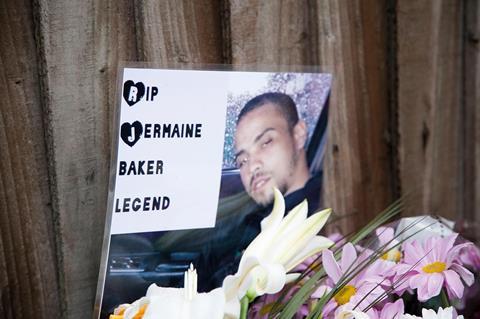An unarmed man sitting in a car is shot dead by police. When this happened in Paris last week, it led to nights of conflagration. When it happened in London in 2015, it produced years of litigation.

The man shot in north London was Jermaine Baker, 28. He was part of a plot to free a prisoner attending court and there was police intelligence that those involved were armed. The officer who fired a single shot at him – identified only as W80 – said he believed that Baker was reaching for a firearm. That proved not to be the case but an imitation machine gun was found in the back of the car. No criminal charges were brought against W80, who said he had feared for his life.
Following an investigation, the Independent Police Complaints Commission concluded that the officer’s belief he had been in imminent danger, though honestly held, was unreasonable. In the commission’s view, that justified disciplinary proceedings.
The Metropolitan Police disagreed. It took the view that disciplinary proceedings could be brought only if the criminal test was met. This looks at whether a mistaken belief is honestly held. After Scotland Yard had refused to bring proceedings against W80, the force was ordered to do so by the Independent Office for Police Conduct (IOPC), which had succeeded the complaints commission.

That instruction was challenged by W80 and the Met. They were successful in the High Court, which said the criminal law test should apply when deciding whether there was a case to answer. Nearly three years ago, the IOPC persuaded the Court of Appeal to overturn that ruling. On Wednesday, the Supreme Court upheld the Court of Appeal ruling – though for different reasons.
The decision has been welcomed by Baker’s family, supported by the campaign group Inquest. The IOPC said it would now consider whether there was still a disciplinary case to answer, taking into account the Supreme Court judgment, evidence heard during a recent public inquiry and further representations from both W80 and Baker’s family.
Explaining the Supreme Court’s unanimous findings, Lord Lloyd-Jones and Lord Stephens observed that police conduct regulations say officers must ‘only use force to the extent that it is necessary, proportionate and reasonable in all the circumstances’. But what the regulations do not say is which test – criminal or civil – should apply to police disciplinary proceedings.
In a criminal case, the question of whether force was necessary must be judged on the assumption that the facts were as the defendant honestly believed them to be, whether or not the defendant was mistaken – and, if the defendant made a mistake of fact, whether or not it was reasonable for the defendant to have done so. In other words, the criminal law allows such force to be used as is objectively reasonable in the circumstances as the defendant genuinely believed them to be.
In civil proceedings, where it is necessary to balance the interests of two or more parties, a mistake of fact can be relied on only if it was a reasonable one for the defendant to have made. As the courts have said, ‘an excuse of self-defence, based on non-existent facts that are honestly but unreasonably believed to exist, must fail’.
The Supreme Court gave several reasons for concluding that the civil law test must be applied in police disciplinary proceedings. Regulations did not permit the degree of subjectivity inherent in the criminal test. Those regulations were unaffected by a subsequent code of ethics. The civil test was more appropriate for regulations intended to improve learning and development.
Why did Scotland Yard try to avoid bringing disciplinary proceedings against an officer who had shot an unarmed man? What made it fight this case all the way to the Supreme Court?
One answer can be found in evidence to the Court of Appeal from the National Police Chiefs’ Council. Simon Chesterman, chief constable of the Civil Nuclear Constabulary, said that recruitment and retention of armed officers was challenging because of ‘concerns about what would happen in the event they have to discharge their firearm in terms of the risk of being criminally prosecuted and/or dismissed’. Disciplining officers must be bad for morale.
Another answer is to be found in what the Supreme Court described as the ‘proliferation of legislation and guidance in relation to the use of force by police officers which has resulted in unnecessary complexity and in obscuring the fundamental principles which must be applied’. The justices hoped it might be possible to ‘recast’ the legislation more clearly.
That may be wishful thinking. But the Metropolitan Police commissioner Sir Mark Rowley said shortly before the judgment was released that the present misconduct system was ‘bizarre and over-regulated’, with too many sacked officers being reinstated on appeal. A Home Office overhaul is clearly long overdue.
joshua@rozenberg.net































No comments yet